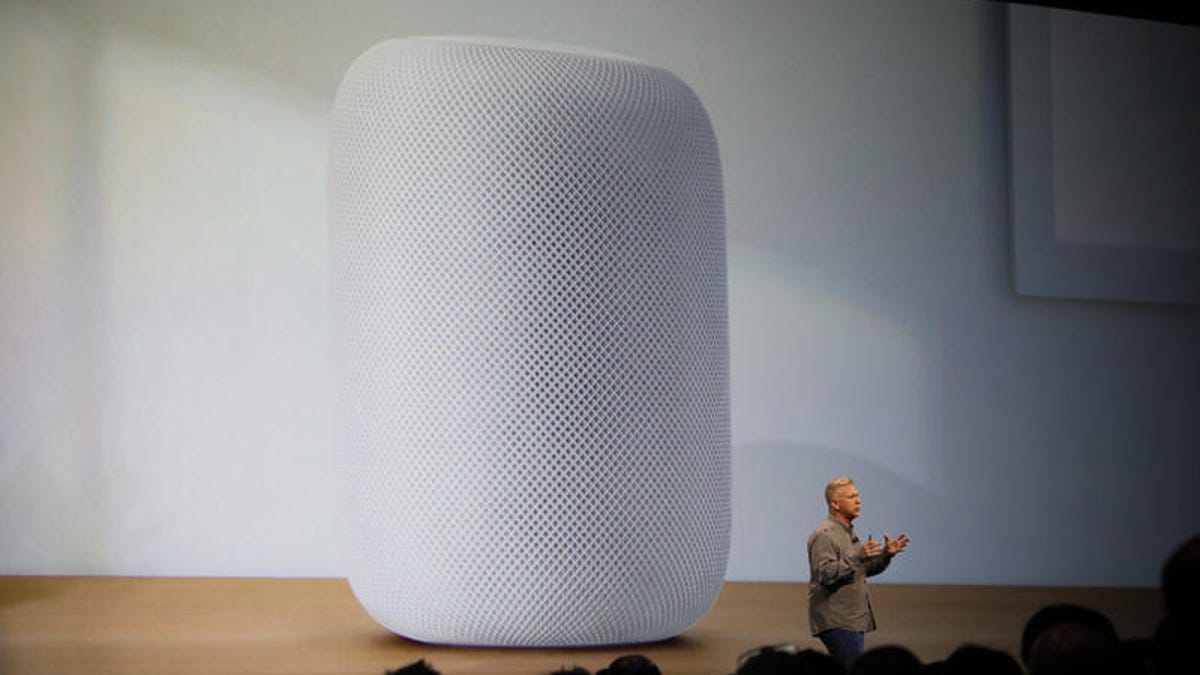Apple wants Siri to read your mind and take over your home
At its annual Worldwide Developers Conference, Apple introduced a smarter, more expressive Siri that can predict what you want before you even ask. And one more thing: We finally met the Siri-powered smart speaker.

With more voice assistants competing for your attention than ever before, the time was right for Apple to introduce a slew of Siri upgrades on Monday, June 5, at its annual Worldwide Developers Conference. On top of that, we finally got our first look at Apple's Amazon Echo competitor: the upcoming HomePod smart speaker that Siri will soon call home.
The HomePod won't be here until December, but Siri's new tools and tricks will arrive with Apple's next round of software updates. Chief among these new skills are new translation capabilities, more natural-sounding vocal tones and proactive "Siri Intelligence" that'll aim to provide you with content relevant to your interests before you even think to ask for it. Here's a running list of everything that's new:
Coming soon: Siri Translations.
- Siri Watch face for
Apple Watch
— The newest software for the Apple Watch will now include a special, Siri-centric watch face that serves as a running feed of personalized updates from Siri, all powered by machine learning.
- New, more expressive voices — Both the male and female versions of Siri are getting a fresh set of vocal chords in iOS 11, with less robotic, more natural-sounding speaking tones. The example given on stage at WWDC: Siri reading off a five-day forecast with the word "sunny" said three times in a row and her inflection shifting slightly each time.
- Siri Translations — Also new in iOS 11: You'll be able to ask Siri to translate things. Just say something like, "How do you say, 'What's for breakfast?' in Spanish?" and Siri will read off the translation for you. At launch, she'll translate Chinese, French, German, Italian and Spanish.
- SiriKit — The latest of Apple's "kits" for developers, SiriKit will help the makers of third-party apps and services take advantage of Siri controls on the iPhone, with an obvious goal of getting more of your apps to work with the voice assistant.
- Siri Intelligence — Apple wants Siri to be able to answer the question of what you, the user, want to do next without ever needing you to ask it. To that end, Siri will study your interests as you're browsing the web or reading the news, then suggest content that might interest you. She'll sync this understanding of your tastes across all of your devices, too.
Of course, it's the $349 Apple HomePod that everyone's talking about the most. It'll compete with the Amazon Echo and Google Home smart speakers when it arrives this December, and so far, Apple is leaning heavily on the promise of premium sound quality to help set it apart. That includes new support in iOS for multispeaker, whole-home audio setups.
On the Siri front, you'll be able to activate the HomePod just by saying, "Hey, Siri" -- from there, you can ask it a question or give it a command, just like you can with the Amazon Echo and the Google Home. In addition to streaming music and podcasts and looking up facts, she'll be able to control HomeKit-compatible smart home gadgets like connected lights and app-enabled thermostats.
We'll have more on the HomePod and how it stacks up against its competition in the very near future, including hands-on coverage from WWDC in San Jose. For now, you'll find all of CNET's WWDC coverage here.

